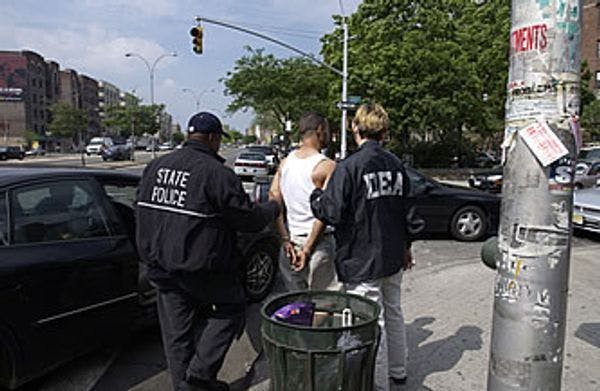Los expertos coinciden en que la guerra contra las drogas ha sido un desastre. ¿Llegó la hora de la legalización?
La guerra contra las drogas tiene costes humanos y económicos devastadores, alimenta los mercados macroeconómicos ilícitos y no ha contenido la demanda ilícita de sustancias fiscalizadas, por lo que puede que haya llegado el momento de adoptar un nuevo planteamiento frente a la política de drogas.
Más información, en inglés, está disponible abajo.
Suscríbase a las Alertas mensuales del IDPC para recibir información sobre cuestiones relacionadas con políticas sobre drogas.
By Stéphanie Thompson
Over 40 years ago, the world declared war on drugs. Today, drugs are cheaper, purer and more widely available than ever before, at least on a global scale. So should we admit defeat and start looking for alternatives?
That’s the opinion of doctors from the BMJ – the most widely read medical journal in Britain – who last month called for a rethink of current policies.
“The war on drugs has failed,” the article argues. “There is an imperative to investigate more effective alternatives to criminalization of drug use and supply.”
They join a growing chorus of experts who are pushing for a new approach to the problem.
An expensive, destructive war
Most people who argue for reform point to the war on drug’s devastating effects. “Drugs have destroyed many people. But bad governmental policies have destroyed more,” former UN Secretary-General Kofi Annan argued in Davos two years ago, in a session on the drugs debate.
The destruction comes in different forms. For starters, the criminalization of drugs fuels a violent international narcotics trade, which is eye-wateringly expensive to police. The US, for example, spent $1 trillion trying to get on top of the problem over a 40-year period.
It not only drains government coffers, it also lines the pockets of criminals. An illicit market is by its very nature difficult to quantify, but 2013 estimates had the drugs trade valued at $430 billion – with every single cent going to drug lords who have helped foment unrest and violence, from the slums of Medellín to the inner cities of Chicago.
And while the leaders of international drug cartels escape punishment, otherwise law-abiding citizens are turned into criminals. In the US, for example, every 25 seconds someone is arrested for personal drugs possession. As a recent report from the ACLU found, the effects can be devastating: “I met people who were prosecuted for tiny amounts of drugs – in one case an amount so small that the laboratory couldn’t even weigh it. That man was sentenced to 15 years in Texas.”
Click here to read the full article.
Keep up-to-date with drug policy developments by subscribing to the IDPC Monthly Alert.
Thumbnail: wikipedia
